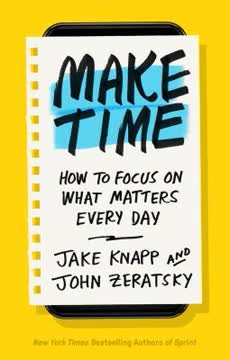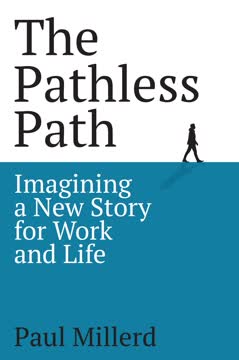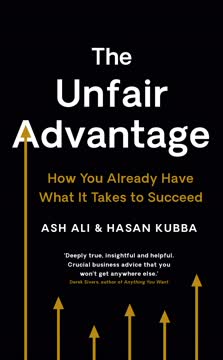重点摘要
1. 生活不公平,但每个人都有不公平的优势
不公平的优势是指使你在商业上处于有利地位的条件、资产或环境。
认清你的优势。 每个人都有某种形式的不公平优势,无论是金钱、智力、地理位置、教育背景还是社会地位。这些优势无法轻易复制或购买,且对每个人都是独一无二的。对于创业者来说,理解并利用这些优势对成功至关重要。
克服劣势。 即使是明显的劣势,也可以通过正确的心态转化为优势。例如,奥普拉·温弗瑞艰难的童年经历帮助她培养了强大的情商和同理心,这成为她作为脱口秀主持人成功的关键。
- 不公平优势的例子:
- 继承的财富或人脉
- 天赋或智力
- 在硅谷等科技中心成长
- 接触精英教育
- 属于特定的人口群体或亚文化
2. 成功是努力与运气的结合
“运气在每个人的生活中都有所体现。”——沃伦·巴菲特
承认运气的作用。 虽然努力工作至关重要,但必须认识到运气在成功中扮演着重要角色。这包括出生的环境、时机和偶然的机会。理解这一点有助于保持谦逊和同情心。
增加你的运气表面。 虽然你无法控制运气,但可以通过采取更多行动、结识更多人以及将自己置于更有可能出现机会的环境中来增加好运的机会。
- 增加运气的方法:
- 参加行业活动和社交会议
- 公开分享你的想法和工作
- 对新体验和新联系保持开放态度
- 采取经过深思熟虑的风险,追求多种机会
3. 确定你的MILES:金钱、智力、位置、教育、地位
你的不公平优势是你个人的经济护城河。
评估你的优势。 使用MILES框架来识别你独特的不公平优势。金钱提供资本和发展空间,智力包括创造力和解决问题的能力,位置影响资源和网络的获取,教育涵盖正式学习和专业知识,地位则包括你的个人品牌和人脉。
利用你的优势。 一旦识别出这些优势,专注于在创业过程中最大化它们。如果你在某个领域较弱,可以考虑与能够补充你优势的人合作。
- 利用MILES的例子:
- 金钱:利用个人储蓄为你的创业提供资金
- 智力:运用创造性解决问题的方法找到独特的解决方案
- 位置:利用创业中心的本地资源和网络
- 教育:运用专业知识解决行业问题
- 地位:利用个人关系获取资金或合作机会
4. 心态是成功的基础
现实成长心态是在自我意识与自信之间的平衡。
培养现实成长心态。 这涉及到对当前情况的现实认识与对自己成长和改善能力的信念之间的平衡。它是设定可实现目标的同时,仍然推动自己达到最大潜力。
发展关键心态特征。 专注于培养愿景、资源fulness、持续学习和毅力。这些特质将帮助你应对创业中的挑战,并在面对挫折时坚持不懈。
- 关键心态特征:
- 愿景:看到并朝着未来目标努力的能力
- 资源fulness:在有限资源下找到创造性解决方案
- 持续学习:适应新信息和技能
- 毅力:在面对障碍和失败时的坚持
5. 在生活方式和快速增长的创业公司之间做出选择
创业=增长。创业公司是旨在快速增长的公司。
理解差异。 生活方式创业公司旨在实现可持续盈利和工作生活平衡,而快速增长的创业公司则专注于快速扩张,通常需要大量投资和高强度的工作时间。根据你的目标、资源和不公平优势做出选择。
考虑你的资源和目标。 生活方式创业公司通常依靠自筹资金并服务于小众市场,而快速增长的创业公司通常需要外部资金并瞄准大市场。对你目前的资源和你想要过的生活保持现实的认识。
- 创业类型的比较:
- 生活方式:风险较低,增长较慢,控制更多,工作生活平衡
- 快速增长:风险较高,增长迅速,外部压力,潜在的巨大成功
6. 找到合适的联合创始人以补充你的技能
作为单独创始人,成功创业的难度成倍增加。
寻找互补技能。 寻找在你薄弱领域有优势的联合创始人。一个典型的创始团队可能包括一个有远见的创意者、一位出色的沟通者和一位技术专家。
建立信任与一致性。 选择你可以信任的联合创始人,并与他们分享你的愿景和价值观。创始人之间的冲突是创业失败的主要原因,因此要花时间建立牢固的关系和清晰的沟通渠道。
- 寻找联合创始人的建议:
- 参加行业活动和聚会
- 加入创业者的在线社区
- 利用你现有的网络进行介绍
- 考虑先一起合作小项目
7. 从最小可行产品(MVP)开始并进行迭代
如果你对产品的第一个版本不感到尴尬,那你就发布得太晚了。
专注于核心功能。 构建一个能够解决目标用户主要问题的MVP,即使它并不完美。这使你能够快速获得真实反馈,避免在不必要的功能上浪费时间。
根据反馈进行迭代。 利用客户反馈不断改进你的产品。如果有必要,准备进行重大变更(转型)。许多成功的创业公司,如Instagram和WhatsApp,都是从最初的概念中显著演变而来的。
- 构建和迭代MVP的步骤:
- 确定你要解决的核心问题
- 构建解决该问题的最简单版本
- 发布并收集用户反馈
- 分析数据和用户行为
- 根据洞察进行改进
- 重复步骤3-5,直到实现产品市场契合
最后更新日期:
FAQ
What's "The Unfair Advantage" about?
- Core Concept: "The Unfair Advantage" by Ash Ali and Hasan Kubba explores how success in startups is not solely about hard work and merit but also about leveraging unique personal advantages.
- Framework Introduction: The book introduces the MILES Framework, which helps identify and leverage personal unfair advantages in Money, Intelligence, Location, Education, and Status.
- Real-Life Examples: It uses real-life examples and case studies to illustrate how successful entrepreneurs have used their unfair advantages to succeed.
- Empowerment Focus: The authors aim to empower readers by showing that everyone has unique advantages that can be leveraged for success.
Why should I read "The Unfair Advantage"?
- Unique Perspective: The book offers a fresh perspective on success, challenging the myth of meritocracy and emphasizing the role of unique personal advantages.
- Practical Framework: It provides a practical framework (MILES) to help readers identify and leverage their own unfair advantages.
- Inspiring Stories: Through inspiring stories and examples, the book motivates readers to recognize and utilize their strengths.
- Actionable Advice: It offers actionable advice for aspiring entrepreneurs, making it a valuable resource for anyone looking to start or grow a business.
What are the key takeaways of "The Unfair Advantage"?
- Meritocracy Myth: Success is not just about hard work; it's also about leveraging unique personal advantages.
- MILES Framework: The framework helps identify unfair advantages in Money, Intelligence, Location, Education, and Status.
- Mindset Matters: A growth mindset, combined with self-awareness, is crucial for leveraging unfair advantages.
- Success Stories: Real-life examples demonstrate how successful entrepreneurs have used their unfair advantages.
How does the MILES Framework work in "The Unfair Advantage"?
- Five Pillars: The MILES Framework consists of Money, Intelligence, Location, Education, and Status, each representing a potential unfair advantage.
- Self-Audit Tool: It serves as a tool for self-audit, helping individuals identify their unique strengths and advantages.
- Leverage for Success: By understanding and leveraging these advantages, individuals can increase their chances of success in business.
- Complementary Strengths: The framework also emphasizes partnering with others who have complementary strengths.
What is the "Reality-Growth Mindset" in "The Unfair Advantage"?
- Balanced Perspective: The Reality-Growth Mindset balances the belief in hard work with the acceptance of life's inherent unfairness.
- Self-Awareness and Belief: It combines self-awareness with self-belief, encouraging individuals to recognize their limitations while striving for growth.
- Practical Application: This mindset helps individuals set realistic goals and take actionable steps toward success.
- Avoiding Extremes: It avoids the extremes of victim mentality and overconfidence, promoting a balanced approach to personal and professional growth.
What are some of the best quotes from "The Unfair Advantage" and what do they mean?
- "Life isn’t fair." This quote emphasizes the book's core message that success is not solely based on merit but also on leveraging unique advantages.
- "Success is both hard work and luck." It highlights the dual nature of success, combining effort with the right opportunities and timing.
- "Your Unfair Advantage is your leverage." This quote underscores the importance of identifying and using personal strengths to gain a competitive edge.
- "Mind over matter, but matter still matters." It reflects the balance between mindset and tangible advantages in achieving success.
How do Ash Ali and Hasan Kubba define "Unfair Advantage"?
- Unique Edge: An Unfair Advantage is a unique condition, asset, or circumstance that gives an individual a competitive edge.
- Not Easily Replicable: These advantages are not easily copied or bought, making them unique to the individual.
- Beyond Skills: It goes beyond skills and includes factors like background, connections, and personal circumstances.
- Foundation for Success: Recognizing and leveraging these advantages can be a foundation for success in business and life.
How can I identify my own Unfair Advantages using the MILES Framework?
- Self-Reflection: Start by reflecting on your personal circumstances, strengths, and experiences in each of the MILES categories.
- Ask Questions: Consider questions like "What do I have that others don't?" and "What unique experiences have shaped me?"
- Seek Feedback: Get feedback from trusted friends or mentors to gain an outside perspective on your strengths.
- Continuous Audit: Regularly revisit and update your self-audit as your circumstances and experiences evolve.
What role does "Mindset" play in "The Unfair Advantage"?
- Foundation of MILES: Mindset is the foundation of the MILES Framework, influencing how individuals perceive and leverage their advantages.
- Growth vs. Fixed: The book contrasts a growth mindset with a fixed mindset, advocating for a balanced Reality-Growth Mindset.
- Empowerment: A positive mindset empowers individuals to take action and make the most of their circumstances.
- Adaptability: It encourages adaptability and resilience in the face of challenges and setbacks.
How do the authors of "The Unfair Advantage" address the myth of meritocracy?
- Challenging the Narrative: The authors challenge the narrative that success is solely based on hard work and merit.
- Highlighting Inequality: They highlight the inherent inequalities and unlevel playing fields in society and business.
- Role of Luck: The book emphasizes the role of luck and timing in achieving success.
- Leveraging Advantages: It encourages readers to focus on leveraging their unique advantages rather than solely relying on hard work.
What are some real-life examples of Unfair Advantages from "The Unfair Advantage"?
- Evan Spiegel: The book discusses how Evan Spiegel's privileged background and connections contributed to Snapchat's success.
- Oprah Winfrey: Oprah's natural talent and early experiences are highlighted as key unfair advantages in her rise to success.
- Tristan Walker: His insight into the needs of African American men led to the success of his startup, Walker & Co.
- Sara Blakely: Her personal experience and insight into women's needs helped her create the billion-dollar company Spanx.
How can "The Unfair Advantage" help aspiring entrepreneurs?
- Identifying Strengths: It helps entrepreneurs identify and leverage their unique strengths and advantages.
- Practical Framework: The MILES Framework provides a practical tool for assessing and utilizing unfair advantages.
- Inspiration and Motivation: Real-life success stories inspire and motivate entrepreneurs to pursue their goals.
- Actionable Steps: The book offers actionable steps and advice for starting and growing a successful business.
评论
《不公平的优势》 收到了大多数积极的评价,读者们赞扬其对成功和创业的现实主义方法。许多人欣赏MILES框架,它帮助识别个人优势,并强调利用独特的强项。评论者认为书中的内容实用、富有洞察力,并且适用于商业和生活。一些人批评书中某些部分的重复和深度不足。总体而言,读者们重视这本书提供的新视角,通过识别和利用个人的不公平优势来实现成功。
Similar Books














